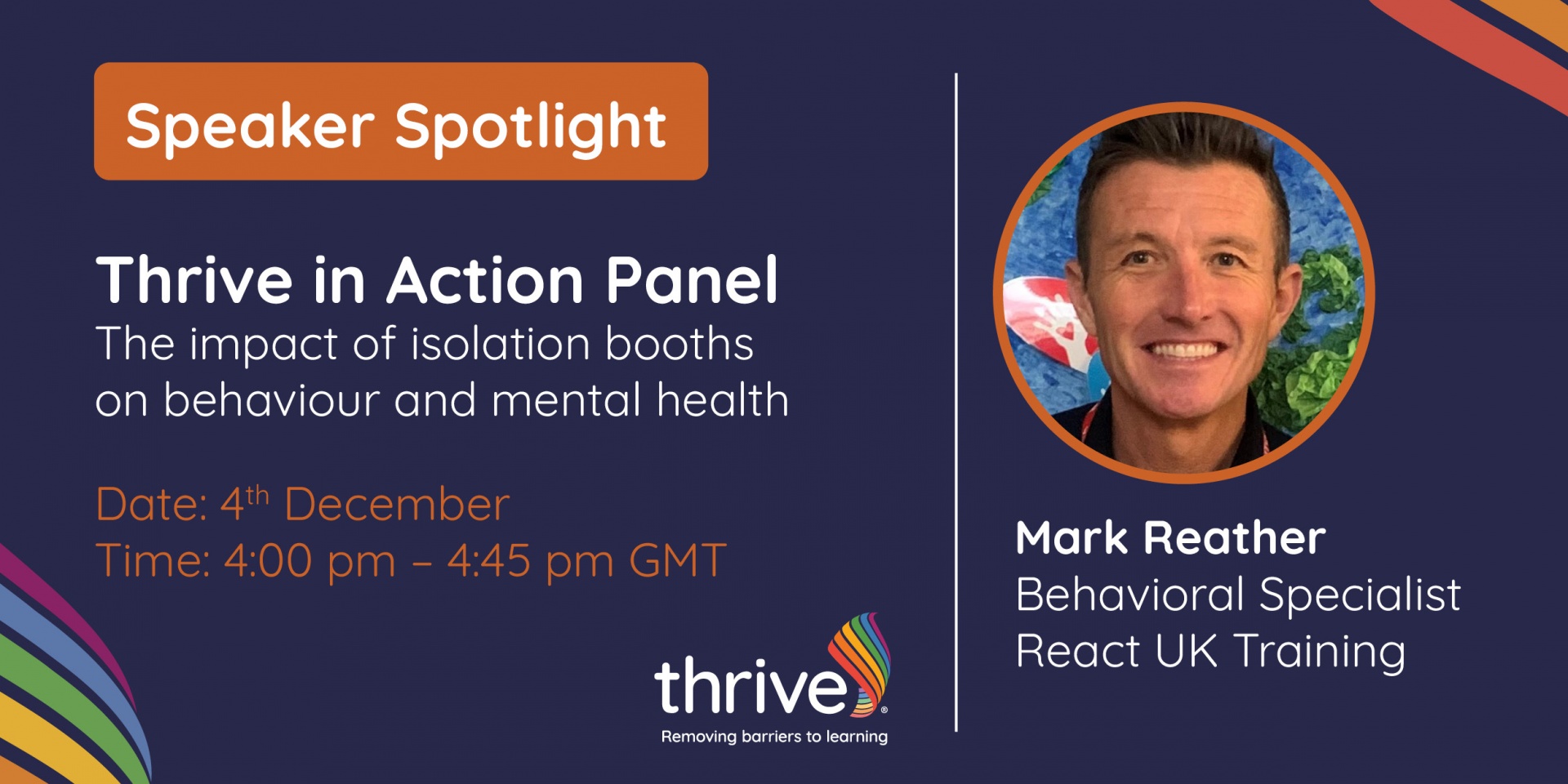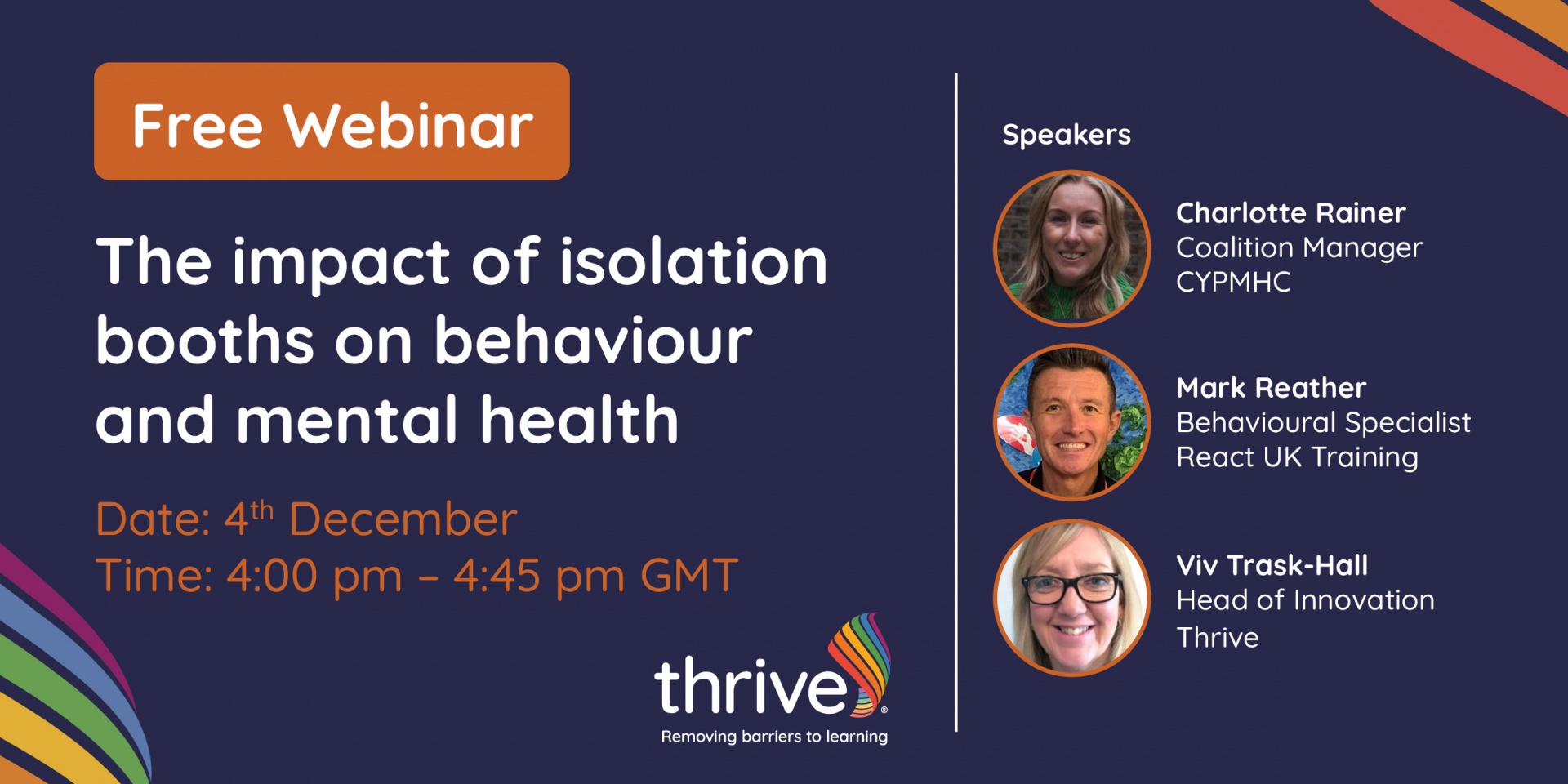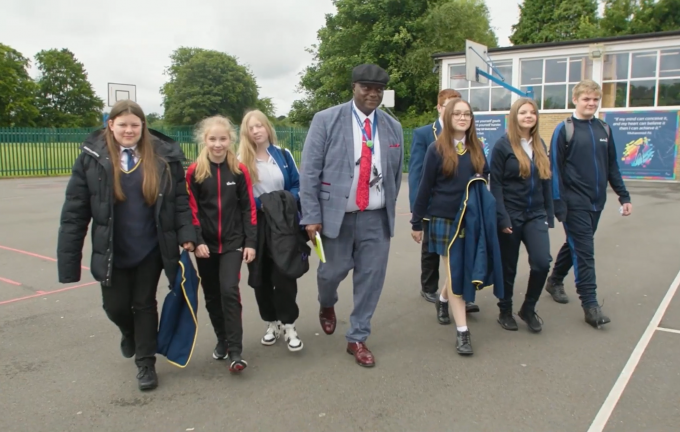Ahead of our Thrive in Action webinar ‘The impact of isolation booths on behaviour and mental health’, we caught up with panellist Mark Reather.
Mark is a Lead Educational Consultant of School Positive Handling at React UK Training. In this Q&A, Mark walks us through his career journey, shares the lightbulb moment that solidified his passion for supporting children and adults, and gives us a taster of the insights he’ll be sharing in the upcoming webinar.
Q1. Please give us a brief overview of your career journey and what led you to React UK Training
In 2012, I started working with a small team of behavioural practitioners to help children who were struggling emotionally in school and presenting challenging behaviour and/or behaviours of concern.
I was a parent myself of an autistic child, so I had experience of supporting a child with additional needs. We based our interventions with children on regulation, building relationships/trust, developing resilience to deal with stress, and teaching cognitive skills (impulse control, empathy, mindfulness, social and emotional intelligence).
With the success we had in helping children in school and at home to be more regulated, we were soon invited into a local school to deliver the interventions over an 8-week period. Once again, due to the positive feedback we had received from staff at the school in relation to more positive behaviour from the children that attended the sessions, we provided our school programme and by request went into other schools.
My wife, who had been a teacher, assistant headteacher and headteacher for over 20 years, decided to leave headship and bring her own wealth of experience and knowledge to augment and expand our training by joining our team.
In 2015, we merged our backgrounds to form React UK Training, which over the last 8 years continued to evolve in relation to evidenced-based interventions in positive behaviour support training to schools and foster care settings.
Q2. What do you enjoy most about your role?
Making a difference to the adults supporting children in educational and foster care settings through evidenced-based interventions in prevention, relationships, positive behaviour support, de-escalation, exclusion and restraint reduction.
Q3. Can you share a lightbulb moment that solidified your passion for what you do?
Learning and sharing how to reframe behaviour - is it a stress behaviour or a misbehaviour? Understanding how excessive stress can impair a child’s ability to control their behaviour, problem solve, learn, and emotionally regulate in school.
Q4. What insights are you keen to share at the upcoming Thrive in Action webinar ‘The impact of isolation booths on behaviour and mental health’?
How the prolonged and repeated use of isolation interventions with specific children who may have delayed or impaired cognitive skills are not only ineffective but can further fuel challenging behaviour or behaviours of concern.
There is very little evidence that isolation works with dysregulated behaviour that presents from stress. The neuroscience from the last 40 years shows us that interventions to change behaviour are about developing skill, not using will (force).
Q5. What do you like to do to look after your own wellbeing?
I rely on exercise and train in a martial art, which allows me to stay regulated in dealing with times of stress. One of the protective factors in my life is my wife, together we enjoy walking, photography and attending concerts which all support my mental wellbeing.
Thrive in Action: The impact of isolation booths on behaviour and mental health
Disruptive behaviour can be a major cause of stress and frustration for educators. Desperate to maintain calm, productive classrooms, some are resorting to isolation booths to combat the problem. But is this form of ‘time out’ doing young people more harm than good?
In ‘The impact of isolation booths on behaviour and mental health’, Thrive's Viv Trask-Hall is joined by Charlotte Rainer of the Children and Young People's Mental Health Coalition, and Mark Reather from React UK Training. Collectively they’ll discuss and debate the effects of isolation booths and explore alternative approaches that prioritise the wellbeing of children and young people.
After just 45 minutes, you'll have:
- An insight into the neuroscience behind behaviour
- Understanding of what happens to a young person’s brain and body when they’re put into isolation
- Key takeaways from research into punitive approaches and why they can be detrimental to mental health
- Actionable alternatives to sanctions that are more likely to improve behaviour long-term
Can't join us live? Sign up anyway and we'll share the recording.
Over to you
To date, over 75,000 educators and support staff have received Thrive training, ensuring that over 795,000 children and young people have access to the Thrive Approach – changing lives and improving pupil attendance, behaviour and attainment, as well as staff wellbeing.
Are you ready to join them? Book a Discovery Call with a member of the team to find out how.






_680.jpg)

_680.jpg)